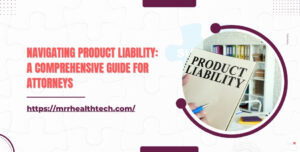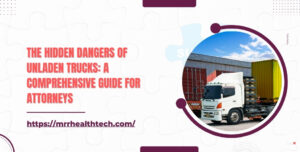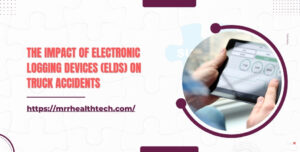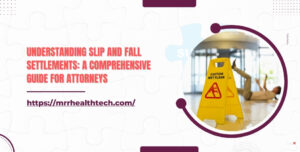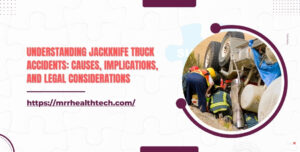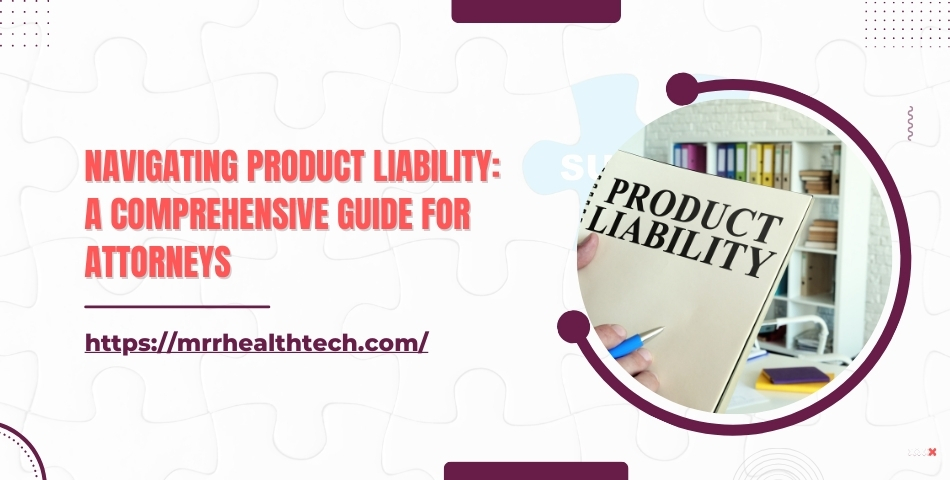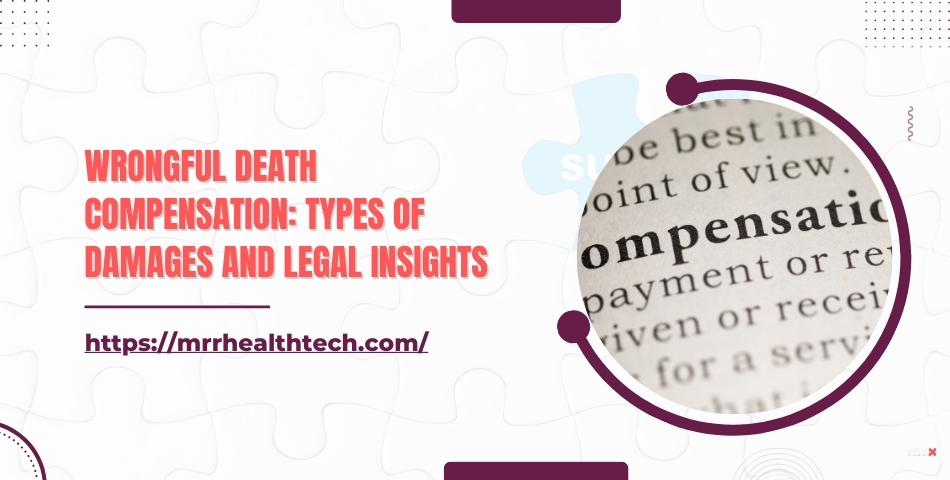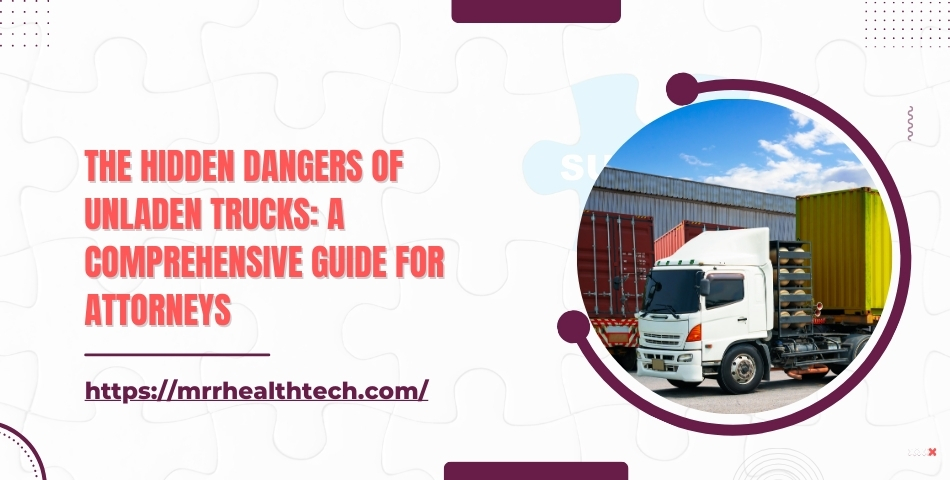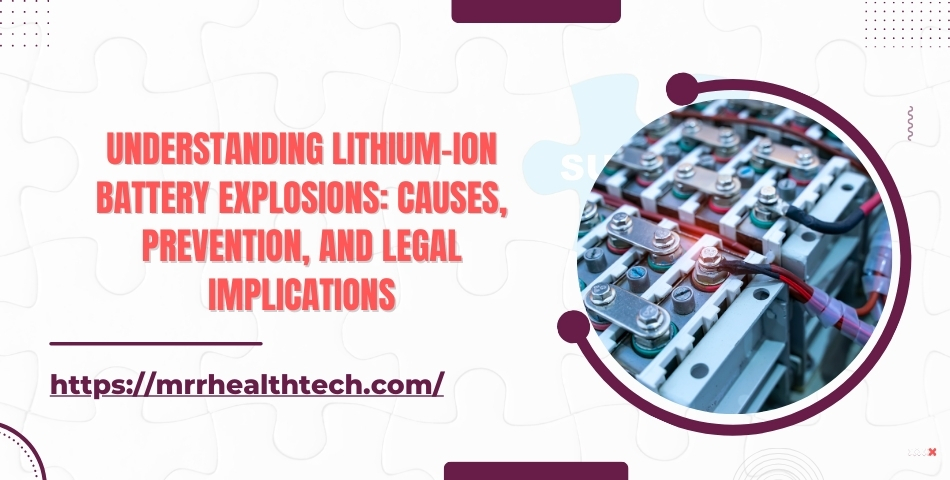
Introduction
Lithium-ion battery are essential components of the modern world with utilities that range from mobile devices to electric vehicles. Nonetheless, there are also considerable dangers, such as fires and even explosions. This paper endeavors to unpack the pointers behind loss of a lithium ion battery’s life leading to an explosion, what can be done to prevent this from happening and the legal ramifications to those in question and their families. In the end, we will address the role of medical records review firms in assisting lawyers in resolving litigation matters that arise from batty-related litigation.
What Are Lithium-Ion Batteries?
Definition and Functionality
A lithium-ion battery is an electrochemical cell that is capable of being recharged and contains lithium ions that circulate between the positive and the negative electrodes. Their popularity is also contributed by their self-discharge characteristics, energy density, and the time an energy source is retained. The following are the mainstays of most applications:
- Consumer Electronics: Tablets, Laptops, Smartphones.
- Electric Vehicles: Bicycles and Cars, Scooters.
- Medical Devices: Portable monitors, pacemaker.
- Industrial Equipment: Drones, Power tools.
Advantages and Risks
Among the benefits presented by lithium-ion batteries, one must accept the fact that there are potential risks especially if the battery/ device has not been managed or manufactured in the right manner. It’s definitely vital for consumers and indeed lawyers to comprehend them.
Causes of Lithium-Ion Battery Explosions
1. Thermal Runaway
What is Thermal Runaway?
Thermal runaway is a critical failure mode in lithium-ion batteries, characterized by a self-sustaining increase in temperature. This phenomenon can lead to:
- Abundance of Igniting Gases: As the temperature of the battery goes high, the gases it possesses can combust.
- Self-combustion And Blast: The effect of incendiary gases laced with molten temperatures can be a disaster waiting to happen.
Factors Contributing to Thermal Runaway
- Overcharging: Charging more than the actual requirement of the battery can lead to overheating of the battery.
- External Force: A tear or dent can affect the entire working of the battery.
- Quality Issues: Inefficiencies can let unfavorable substances come and cause shorts.
2. Poor Quality Materials
Impact of Low-Quality Components
Using substandard materials in battery production can significantly increase the risk of failure. Common issues include:
- Impurities: Unwanted cut-outs can result into creation of short circuits.
- Poor Insulation: If there is great insufficient insulation than the unit will automatically get heated.
3. Environmental Factors
Influence of External Conditions
Lithium-ion batteries are sensitive to environmental conditions. Factors such as:
- High Temperatures: If high heat is applied than that can fasten the degradation process.
- Humidity: Water vapor can tarnish steel and lead to short circuits.
Signs of a Failing Lithium-Ion Battery
1. Overheating
If some gadget or device becomes too hot like burning especially with proximity to the battery, this indicates that there is some problem with the device. Users should stop using the device with relevance to power supply and power.
2. Swelling or Bulging
When the battery of a device exhibits some signs of distortion, perhaps a bulge or a swelling, this indicates that the battery or the device is about to fail. Such devices should be abandoned for use and the batter or the device disposed of in proper perspective.
3. Reduced Performance
A significant drop in battery life or erratic charging behavior can signal impending failure. Users should monitor performance closely and consider replacement.
Best Practices for Attorneys Handling Lithium-Ion Battery Cases
1. Comprehensive Case Evaluation
Importance of Thorough Investigations
Attorneys should conduct detailed investigations into the circumstances surrounding the explosion. This includes:
- Collecting Evidence: Accumulating all sorts of files such as medical history, reports of the incidents, and description of the product.
- Consulting Experts: Enlisting the services of battery safety professionals, to assist in ascertaining the reasons of explosion and offering evidence.
2. Effective Communication with Clients
Keeping Clients Informed
Maintaining open lines of communication with clients is essential. Attorneys should:
- Explain Legal Processes: Ensure clients understand the steps involved in pursuing a claim.
- Provide Regular Updates: Keep clients informed about the progress of their case.
3. Utilizing Medical Records Review Services
Enhancing Case Strength
By leveraging medical records review services, attorneys can enhance their cases by:
- Organization of All Medical Papers: Ensure that all medical records are collected and placed in a file.
- Determine What Medical Conditions Are Relevant: Pinpointing factors that raise medical issues that may determine the result of a case.
Common Challenges in Lithium-Ion Battery Explosion Cases
1. Proving Negligence
Establishing Liability
One of the primary challenges in these cases is proving that negligence on the part of the manufacturer or distributor led to the explosion. Attorneys must gather substantial evidence, including:
- Expert Testimony: For the purposes of establishing the standard of care and its departure, professionals were enlisted.
- Existing Case Files: Such evidence indicates instances of use of the same product and similar cases before.
2. Navigating Complex Regulations
Understanding Industry Standards
Lithium-ion battery production is subject to various regulations. Attorneys must be familiar with:
- Safety Standards: Identifying safety standards related to the product that a manufacturer should comply with.
- Regulatory Compliance: Understanding the consequences of complying with or breaching a law in terms of liability or risk exposure.
Case Studies
Case Study 1: Smartphone Battery Explosion
Overview: An attorney defended a person who received burn injuries on their body when he was charging his smartphone and the battery exploded.
Challenges: The user did ignore some of the manufacturer’s instructions, which makes it harder to file a claim.
Solutions: The attorney was able to provide evidence of the burnt injuries in a court of law through medical records review services and also had a battery expert who meticulously examined the device. The manufacturer’s battery expert testified that the device’s battery had a defect which was the major cause.
Compensation: The attorney was able to convince the other party to come to a settlement where all medical expenses, pain and suffering caused, and income loss were addressed.
Case Study 2: Electric Vehicle Battery Incident
Overview: An attorney represented an electric vehicle driver, a customer whose battery malfunction led to a fire outbreak in the electric car.
Challenges: A key challenge was to demonstrate that the battery did not meet performance criteria and was prone to full impedance without external intervention.
Solutions: The vehicle maintenance records and the battery of the vehicle were properly verified, as the lawyer prepared and presented the case. There were also medical records review services that recorded the injuries sustained by the driver and the treatment that followed.
Compensation: The case settlements brought this matter to a positive conclusion in respect of medical expenses and damage to the vehicle.
Conclusion
The explosion of lithium-ion batteries endangers consumers and creates issues for lawyers. An insight into causal factors, preventive actions, as well as legal scope available will enable the attorneys in representing the clients better. Incorporation of medical records review services allows for strengthening of case strategies thereby making it possible for the clients to get justice through compensation.

